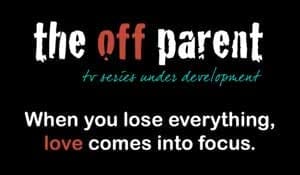Passive Aggressive Mis-Communication

“Stop trying to change me.”
In my two marriages there were plenty of power struggles. Just like any relationship, people begin to wield influence. And asking for a change is acceptable. Manipulating the other person, through anger or rewards, in order to get them to do something you want but would rather not ask them to do, well, that’s called passive aggression.
|
As adults in relationships we need to be aware of asking for something and asking around something.
|
We often want different behaviors from those around us. I’d like the person in front of me to drive more quickly. I’d like my kids to pick up the towels from their bathrooms rather than throwing them for me to pick up. My role is to ask them to pick up their towels. And on about the tenth request, since we’ve moved into the new house, they are beginning to get it. They are teenagers, they could be not doing it to piss me off, or get some autonomy.
As adults in relationships we need to be aware of asking for something and asking around something. Let me give you an example from a few nights ago.
My fiance likes to drink. Not a problem. I am rather “meh” about alcohol, but I could always say yes to an ice cream. So when we are approaching a bar and she asks, “Would you like a drink?” I hear that she is asking if I am thirsty.
The other night she asked me and I said no. As we got closer, she asked, “Are you sure?” “Yep,” I said. And she asked a third time, “What about a water?” “Nope,” I said with some frustration beginning to show in my tone, “Nothing, thank you.” I probably said something like, “Quit asking.” But I don’t recall. I do know she reacted with a pout, letting me know I my frustration had registered.
Later the next morning as we were sorting through our plans and replays I made a discovery that excited me a bit.
“When we were heading towards the bar last night you asked me if I wanted a drink.”
“Yes, and then you got all pissy.”
“Wait. I just understood what was frustrating for me.” She looked at me with suspended disbelief. “When you asked me if I wanted a drink, I wasn’t sure if you were asking me if I was thirsty, or if you were making a request for me to join you for a drink.”
“Okay.”
“To me they are completely different.”
“I was asking if you were thirsty.”
“Yes, but you don’t have to ask me three times to see if I am thirsty. It’s very possible what you were asking initially, was ‘Will you have a drink with me?’ But that’s not what I heard.”
|
In our relationships with others we need to strive to ask for what we want. To complain when we don’t get the results we wanted. And to make our own desires as clear as possible.
|
“And if I knew you were asking me to join you for a drink, as in a request for us to share a drink together, then I can still say no, but I understand more clearly what you are asking. It seems like last night, the reason you asked three times, was because you might have been asking me to join you for a drink.”
“Maybe.”
“What do you think?”
“I think I was asking if you were thirsty?”
“Three times?”
“I agree, that’s a bit much.”
“So you understand how I got frustrated?”
“No, I just thought you were being an ass.”
“But I’m never an ass on purpose. I’m an ass to register frustration, or if I’m clear, to ask you for a behavior modification.”
So the passive aggressive way to ask me to join her for a drink, would’ve been to ask if I wanted a drink. But typically I say no to that question, because a “drink” is rarely what I’m thinking of. If she EVER asks me if I wanted an ice cream, I’m guessing I’d be 100% compliant. But with alcohol, I’m more like 10%. Just not my thing.
|
“Do you want a drink?” is very different from “I’d like you to have a drink with me.”
|
In our relationships with others we need to strive to ask for what we want. To complain when we don’t get the results we wanted. And to make our own desires as clear as possible. Anything unspoken, or actions used to manipulate the person into doing what we want, well, that’s out-of-bounds.
Speak what you want. Complain when you don’t get it. And ask for a modification if it becomes a habit, or pattern of disconnection.
“Do you want a drink?” is very different from “I’d like you to have a drink with me.”
The first is about me. The second is about you. If you want me to have a drink with you, say it. It shouldn’t matter if I have bubbly water or bubbly, unless that is also what you are asking.
The clearer we become in our communications the clearer we can be with our intentions and disappointments. Only through this type of honest communication do we get tuned-in to one another.
Sincerely,
The Off Parent
@theoffparent
back to On Dating Again
related posts:
- Dating Time Out: Swiping Left or Right is Wearing Me Out
- Gentle Catch and Release
- Unadulterated Love: What Is Joyful Sex?
- Reversing the Flow: Putting Women in Charge of Courtship
Resources:
- The Divorce Library (reading list)
- Songs of Divorce (free listening library – youtube sourced songs)
- Laugh It Off (building a resource library of funny videos and other diversions)
- Facebook (follow us on Facebook and keep up with all the conversations)
- The 5 Love Languages (a book on love styles by Gary Chapman)
image: hello sunshine, creative commons usage








Leave a Reply
You must be logged in to post a comment.